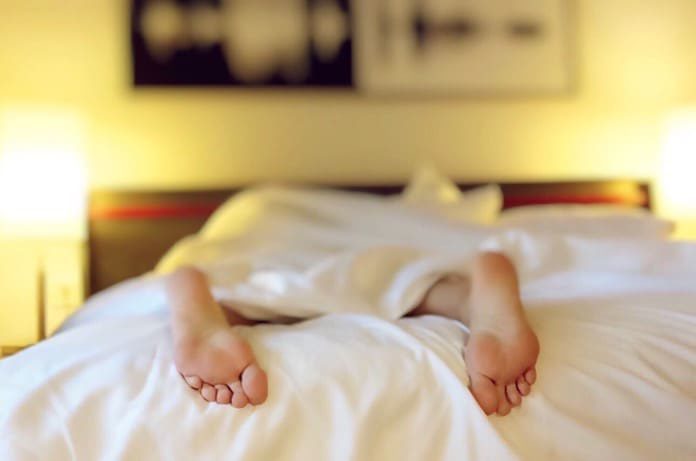Having a good sleep schedule is vital for human health. A recent study published in Chronobiology International has investigated the effects of bright-light exposure during daytime sleeping following a night shift.
Shift work has become a crucial component of our modern-day work system.
However, shift work can negatively impact an individual’s sleep schedule. Past research has demonstrated that there is an association between shift work and the incidence of cancer and various diseases such as sleep disorders, cardiovascular disorders, and gastrointestinal disorders.
The World Health Organization’s International Agency for Research on Cancer has even classed “shift work that involves circadian disruption” to be likely carcinogenic to humans.
This is based on evidence from experimental studies with little evidence from epidemiological studies.
Increased Cancer Rates May Be Due to a Disrupted Sleep Schedule
Many studies have proposed that the increased occurrence of cancers may be linked to the suppression of melatonin secretion at night, due to a disrupted sleep schedule.
Melatonin is a hormone that is secreted during the night and it plays an important role in the biological rhythm and sleep quality in humans.
The secretion of melatonin at night is decreased by bright-light exposure during the night.
For shift workers who often need to work one night and sleep the next, it is therefore important to maintain a work environment that does not prevent the secretion of melatonin during the night.
Determining the Effects of Bright-Light Exposure
A recent study carried out in Japan and published in Chronobiology International set out to evaluate the effects of bright-light exposure during daytime sleeping after a shift of night work, compared with dim-light exposure.
The concentration of melatonin was measured in the saliva of study participants in order to assess the nighttime secretion of melatonin by the brain.
The results of the study demonstrated that nighttime melatonin secretion until midnight was decreased after daytime sleeping under dim-light conditions.
The secretion of melatonin did not change after daytime sleeping in a bright-light environment.
Daytime Sleeping Did Not Reduce Night-Time Secretion of Melatonin
The conclusion made in the study was that daytime sleeping under a bright light after night work did not reduce the night-time secretion of melatonin and did not affect sleep quality during the daytime.
The authors also recognized that their study had limitations such as the study only included males, the sample size of the study was small, and the motion of participants was not observed during daytime sleeping.
Further research is required that involves females as well as a larger sample size, and observations during sleep.
Additional research could support the findings of this study and thus could lead to the introduction of a new sleep schedule for shift and night workers.
Reference: Nagashima.S et al. (2017). Bright-light exposure during daytime sleeping affects nocturnal melatonin secretion after simulated night work. Available: http://www.tandfonline.com/doi/full/10.1080/07420528.2017.1394321. Last accessed 5th Dec 2017.
Photo by Pixabay from Pexels
Any Web sites linked from Medical News Bulletin site are created by organizations outside of Medical News Bulletin and are the sole responsibility of those organizations. These links are strictly provided by Medical News Bulletin as a convenience to you for additional information only. Medical News Bulletin does not approve or endorse the content on any third-party Web sites and is not responsible for the content of linked third-party sites or third-party advertisements, as well as does not make any representations regarding their content or accuracy. Your use of third-party web sites is at your own risk and subject to the terms and conditions of use as per such sites policies. Medical News Bulletin does not provide specific medical advice, diagnosis or treatment and hereby disclaims any assumption of any of the obligations, claims or liabilities..



